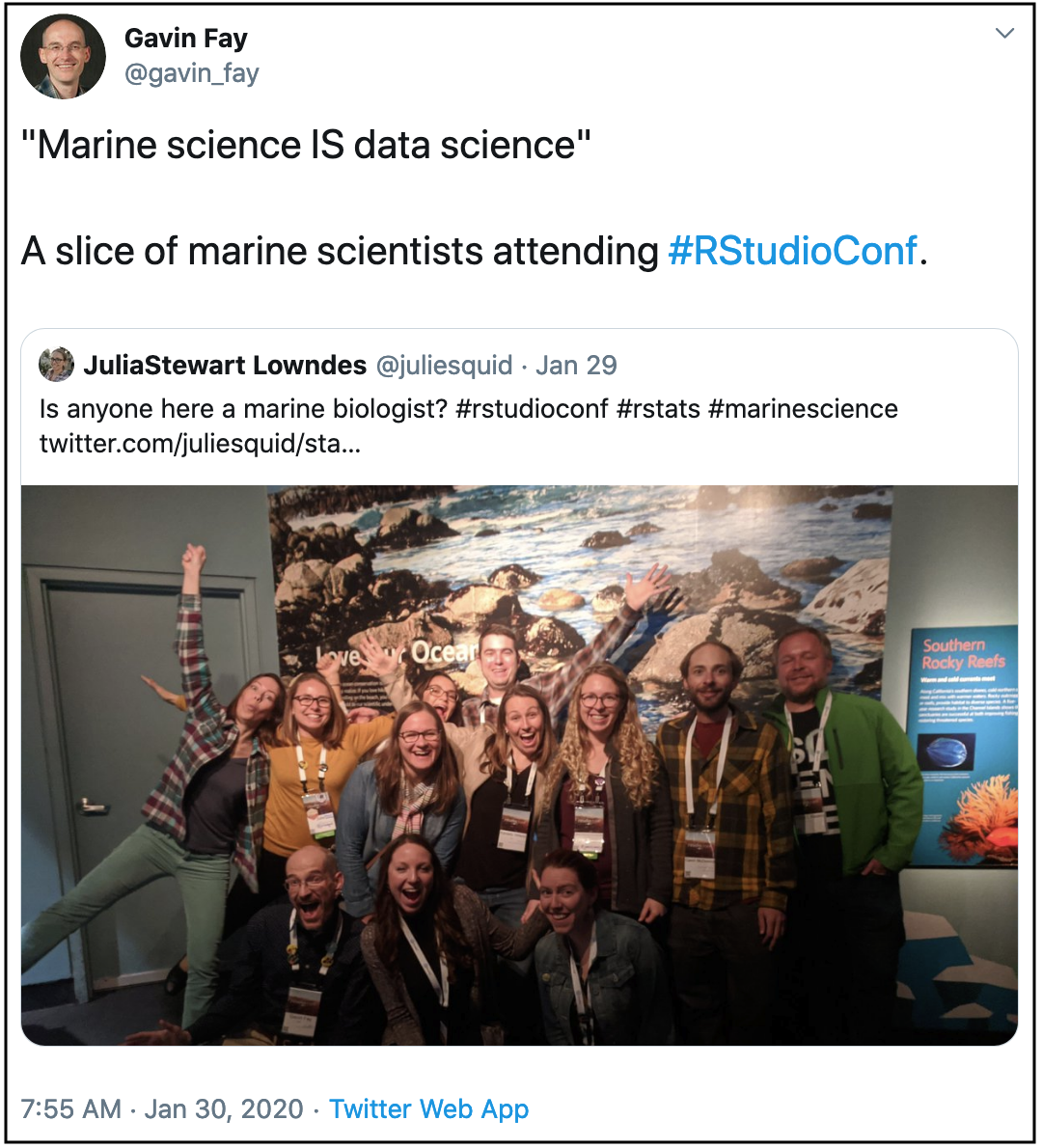Last week Openscapes went to the RStudio Conference! This is a brief summary of a conference that truly made history, both globally as RStudio announced it is a Public Benefit Corporation, and personally for me, since it marked five years of being part of the #rstats community. It is brief (and does not begin to provide a full summary!), but will be complemented by forthcoming blogs.
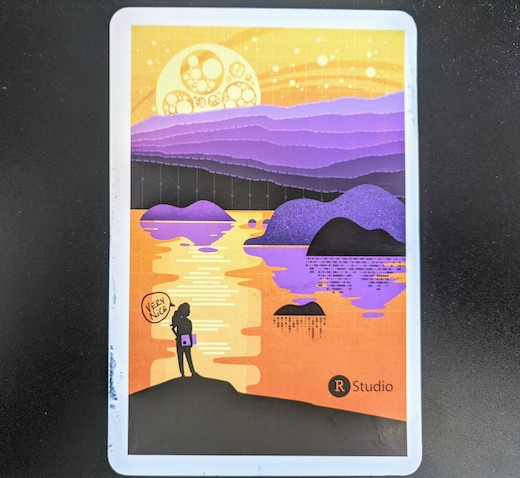
The 2020 RStudio Conference (also written “RStudio::conf(2020)”) kicked off with a gorgeous video about coral reefs and the message “marine science is data science”. It was so inspiring I didn’t immediately catch what a huge deal this was: I was not at a marine biology conference, I was at a global tech conference with over 2400 attendees. Before talks about machine learning and subsetting closures, RStudio::conf(2020) started off with how critical coral reefs and oceans are to the planet, and the role data science plays in sustainability.
By this point I had already been at the conference for two days, teaching a workshop called R for Excel Users with Openscapesers Allison Horst, Jamie (Afflerbach) Montgomery and Jessica Couture. This workshop was a friendly intro to becoming a modern R user, full of tidyverse, RMarkdown, GitHub, collaboration & reproducibility. It was aimed for Excel users who want to add or integrate R and RStudio into their existing data analysis toolkit, with the main intent on empowering participants to continue using R after the workshop. Stay tuned for a separate blog post about the R for Excel Users workshop!
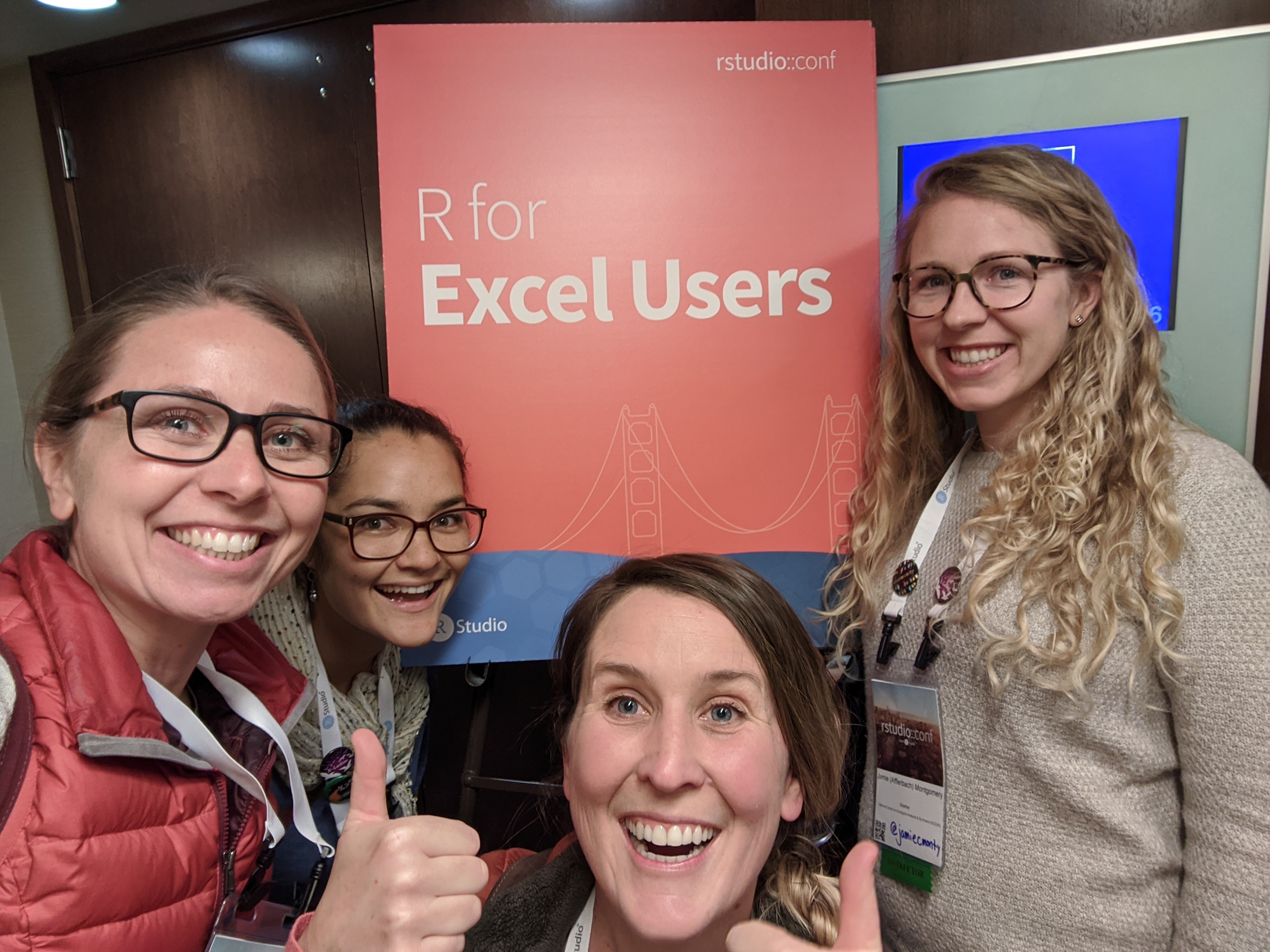
RStudio::conf(2020) felt both familiar and monumentous. It felt familiar and cozy as I chatted with #rstats friends following Chief Scientist Hadley Wickham’s welcome, which emphasized the Code of Conduct (I wrote about the importance of setting this tone following last year’s conf). And the conference felt monumentous in a way I could not identify — until Hilary Parker and Roger Peng said in their Keynote that it had been five years since they reunited at the 2015 rOpenSci unconf and decided to start their Not So Standard Deviations podcast. I attended that rOpenSci unconf too, and thus 2020 marks five years of my involvement in the #rstats community — five years of having a more open and kinder perspective on software, collaboration, science, and life. The importance of rOpenSci and the movement it has catalyzed along with RStudio and RLadies also warrants a separate blog post, which is in the works.
But the absolute highlight of RStudio::conf(2020) was that RStudio is now a Public Benefit Corporation. This means that they “have codified our open-source mission into our charter, which means that our corporate decisions must both align with this mission, as well as balance the interests of community, customers, employees, and shareholders.” Additionally, in their charter they have an emphasized focus not only on data science, but on scientific research. JJ Allaire’s keynote announcing this news received a standing ovation. This is a huge deal; they are the first tech company to be a certified “B Corp”, and are a model in ethics and open source to other companies around the world. To me it means that they are the Patagonia of tech and I am so proud to be a part of this community.
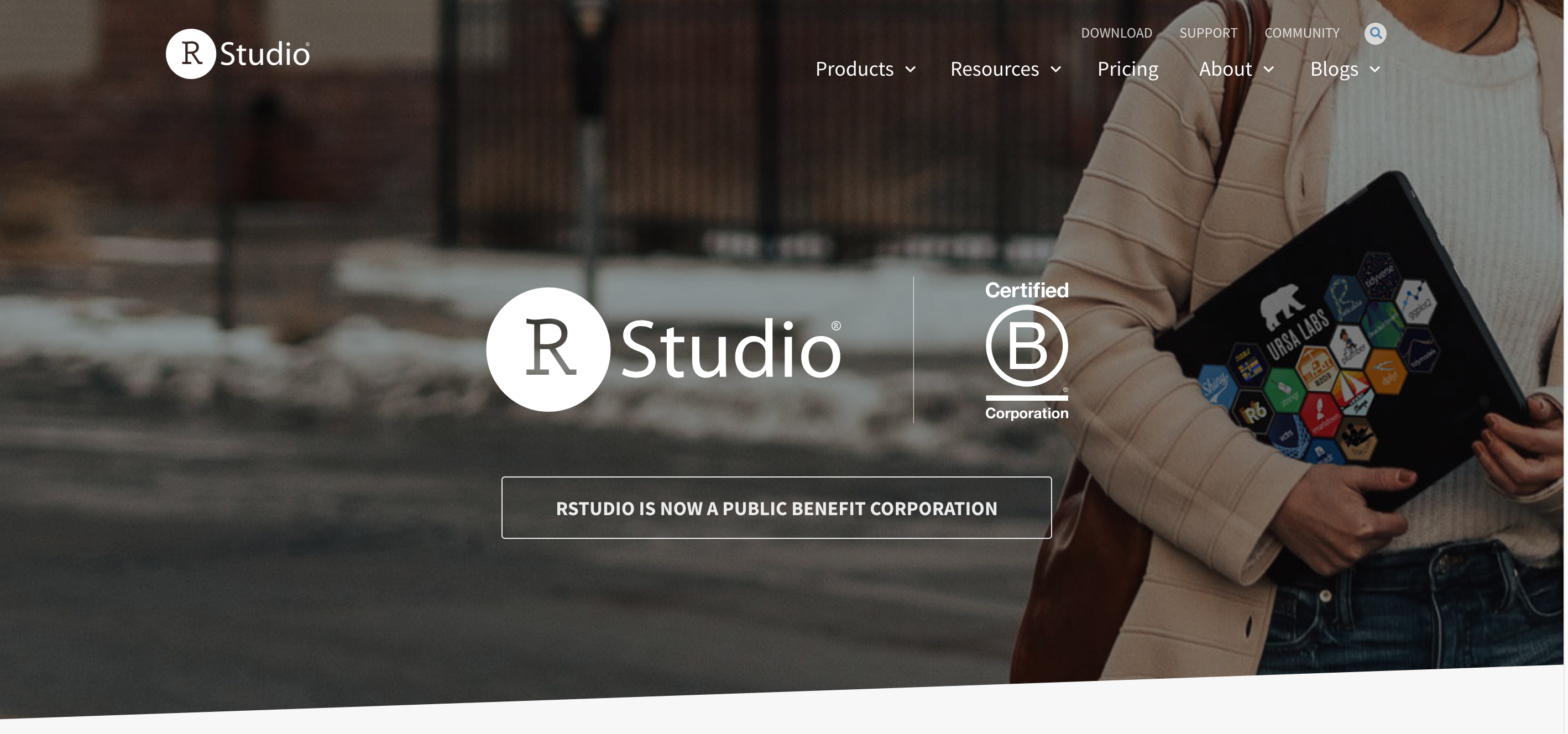
There were many other inspiring talks — some that I saw live and many that I will watch later online since it was impossible to see them all and all talks were recorded (and live-streamed!) and will soon be available from resources.rstudio.com (slides are now available, compiled by Emil Hvitfeldt!). Highlights included talks by Jeff Leek, Desirée De Leon, Nick Tierney, and the keynote by Jenny Bryan (links are summary Twitter threads by Julia Silge). Also, I really appreciate R for the Rest of Us’s thread highlighting content for those starting out in R.
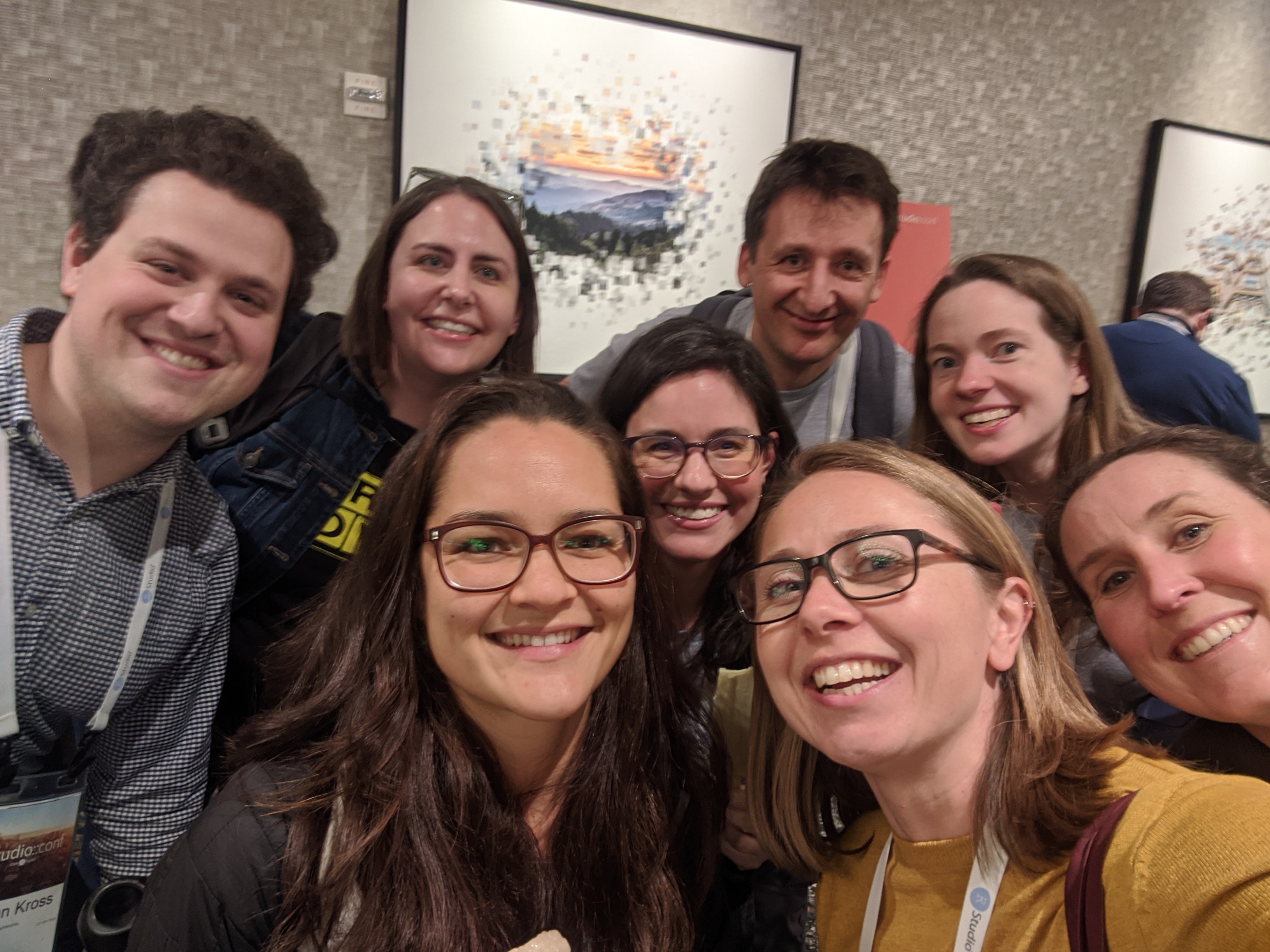
On the drive back home, debriefing of our experiences at RStudio::conf led to Jamie suggesting that I start my own podcast called “That Is So Great” where I interview people about what they do with R and science and ask them why It Is So Great. I am definitely into this idea, we’ll just have to see.
